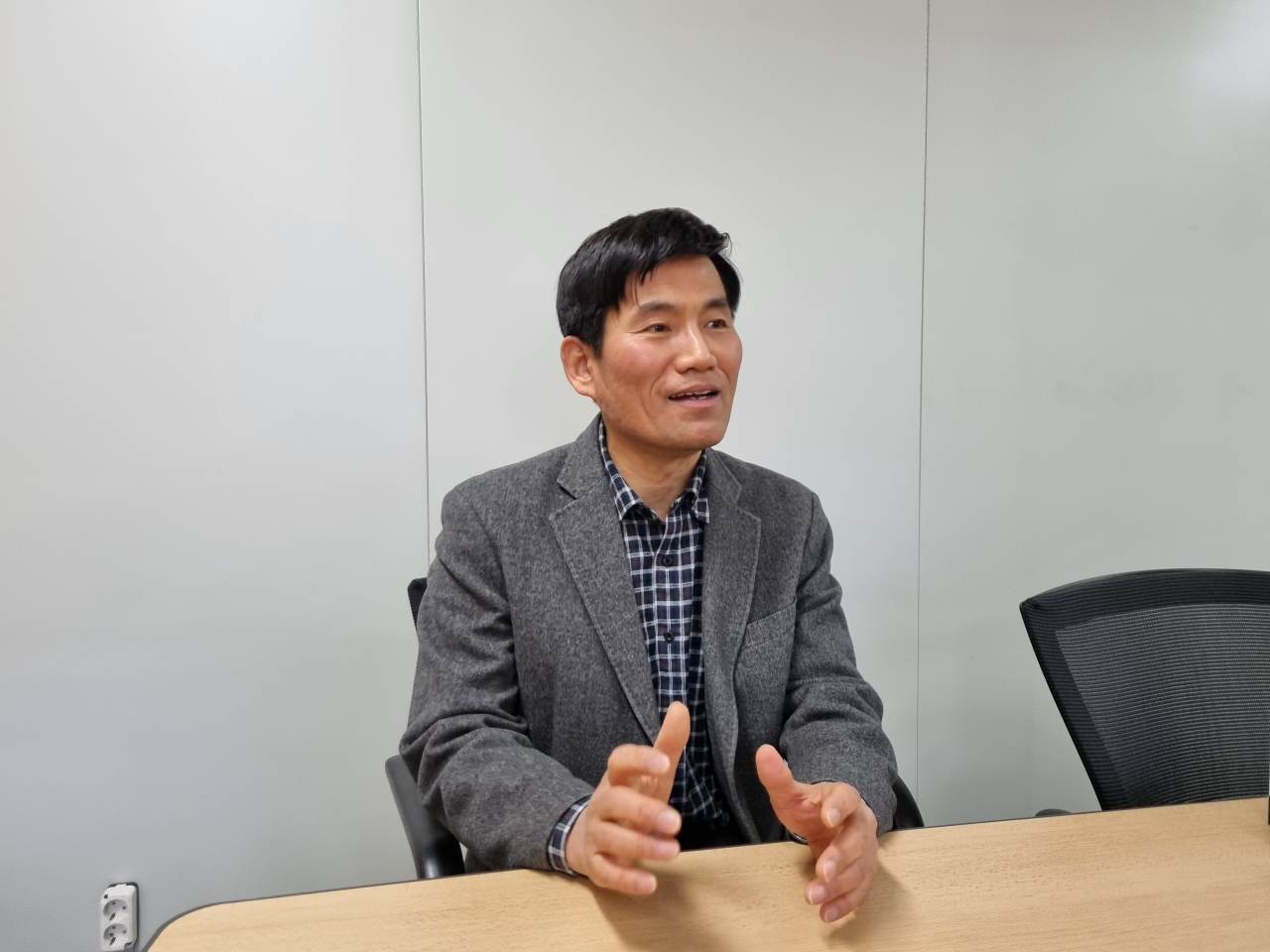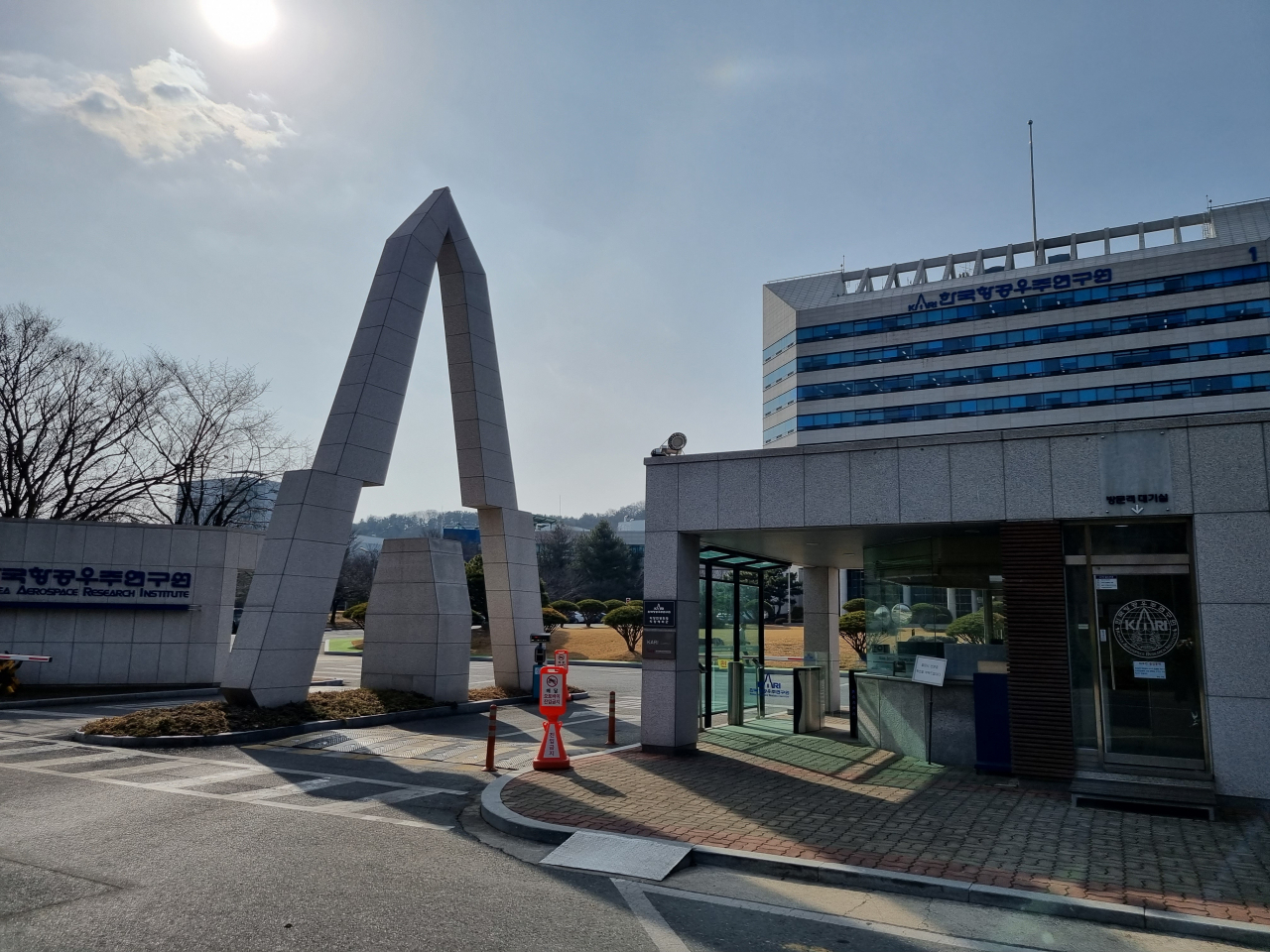[Beyond Earth] ‘Space technology is matter of state survival’
Korea Aerospace Research Institute needs more support to achieve Yoon’s space goals, high-ranking official says
By Kan Hyeong-wooPublished : Feb. 19, 2023 - 14:15

South Korea's space development is more than just science, but also a matter of state survival in terms of security, according to a high-ranking official at the Korea Aerospace Research Institute.
“Frankly, space has been regarded as science technology until now. Space development was done by project, such as developing satellites and space launch vehicles. But with a deeper understanding of space, it has become clear that it's not just about science,” said Lee Joon, executive director of the KARI’s strategy and planning directorate in an interview with The Korea Herald in Daejeon on Feb. 14.
Taking the example of advanced satellites’ integral role in enabling military weapons and the digitalization of a country, Lee emphasized that space technology is directly linked to the state’s survival in terms of security.
“On top of that, space is a future growth engine because asteroids have plenty of resources that are scarce on Earth. If we can go there and take them in the future, it will be a game changer,” Lee said.
As imperative as space technology is, the executive director underlined that Korea will not be able to receive core space technology from other countries because it is now considered a competitor in the global space race after its successful launches of the homegrown rocket Nuri and lunar orbiter Daunri.
Lee, who has spent more than 20 years studying space development, added that the KARI’s current status is well short of achieving the Yoon administration’s “challenging” goals of landing on the moon by 2032 and Mars by 2045.
“There is an absolute number of research personnel required to study and develop new space technology. If we want to develop relevant technologies in the space exploration sector and build more advanced space launch vehicles, we need more people,” Lee said.
The KARI has about 1,000 workers, while the Japan Aerospace Exploration Agency and the US National Aeronautics and Space Administration have about 1,600 and 18,000 workers, respectively.
President Yoon Suk Yeol announced last November a plan to set up an independent government body tentatively called the Korea Aerospace Administration modeled after the US’ NASA to focus on space development and lead space policies in the future.
Lee expressed hopes that the planned establishment of the new space agency by the end of this year will help the KARI receive more governmental support and funding. This will help the KARI become a bigger institute and fulfill its duty to follow the country’s space roadmap, he said.
Korea plans to double space investment
According to the fourth basic plan for promoting space development confirmed by the National Space Committee in December, the Korean government plans to double its annual space investment to 1.5 trillion won ($1.17 billion) by 2027 to expand the country’s space research and development.
The basic space plan, which is renewed every five years, includes five missions -- expanding space exploration, completing space transport, creating space industry, establishing space security and advancing space research capability -- for Korea to be a global space powerhouse by 2045.
Noting that a KARI task force is currently working on coming up with a list of technologies required to achieve the government’s space goals, Lee emphasized the need for those in charge to make faster decisions in approving space research and development projects.
“For instance, there are certain technologies necessary to succeed in landing on Mars by 2045 and we may need to start studying and developing them from next year to achieve that goal,” he said. “The KARI researchers have divided the technologies, which are required by the government’s basic space plan, into 63 categories so far and will go into further details in each category over the course of this year.”
Regarding the transfer of KARI-led space technologies to the private sector, Lee explained that it is a natural transition. He said if a company can take the technology and create profit with it, it is KARI’s duty to hand it over.
“Some may ask what the KARI will do (after transferring technology to a company). But the scope of space technology is unlimited. Some examples are navigation like the Korean Positioning System; setting up satellite constellation; and developing hydrogen or a nuclear-powered engine for a space launch vehicle,” he said.
In December, Hanwha Aerospace signed a 286 billion won contract with the KARI to receive the homegrown Nuri rocket’s technology and lead the project of upgrading the rocket and launching it four more times through 2027.
“In the space sector, there are so-called ‘opinion leaders’ saying that the KARI’s existence would be worthless after the new space agency’s establishment, but I think they don’t have an idea of what we do here and how important our research and development are for the national interest,” Lee said.




















![[Today’s K-pop] Treasure to publish magazine for debut anniversary](http://res.heraldm.com/phpwas/restmb_idxmake.php?idx=642&simg=/content/image/2024/07/26/20240726050551_0.jpg&u=)